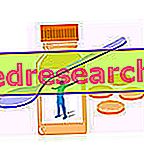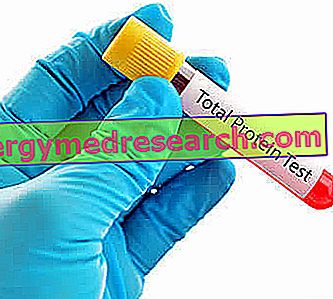NORVASC ® is a drug based on amlodipine besylate
THERAPEUTIC GROUP: Calcium antagonist with predominantly vascular effect.
IndicationsAction mechanismStudies and clinical effectiveness Usage and dosage instructionsWarnings Pregnancy and lactationInteractionsContraindicationsUndesirable effects

Indications NORVASC ® Amlodipine besilate
NORVASC ® is used in the treatment of arterial hypertension, both in monotherapy and combined with other antihypertensive drugs in patients who do not respond.
It is also used in the case of angina pectoris due to chronic stenosis, or consequent to vasoconstriction and coronary vasospasm, and in case of resistance to treatment with nitrates or beta-blockers.
Mechanism of action NORVASC ® Amlodipine besylate
NORVASC ® is usually taken orally, allowing amlodipine besilate to be absorbed at the gastrointestinal level, generating the active ingredient amlodipine with a bioavailability of between 65% and 80%, within 6/12 hours from administration.
The therapeutic effect of NORVASC ® is therefore due to its active ingredient amlodipine, which is able to selectively bind to the slow calcium channels of the smooth and myocardial muscle cell, preventing the incoming flow of calcium necessary to trigger the contractile mechanisms. This biological action translates - at a systemic level - into a reduction of vascular resistance, with consequent antihypertensive action and reduction of cardiac work; these effects, in conjunction with the dilation of the coronary arteries, guarantee a better oxygenation of the myocardium, responsible for the antianginal and protective effect against cardiac ischemia of various kinds.
Once its action is over, amlodipine is metabolized in the liver into inactive derivatives and eliminated mainly through the urine.
The protective role on the cardiovascular system allows NORVASC ® to reduce mortality and morbidity related to cardiovascular diseases, improving survival in patients with heart failure and related diseases.
Studies carried out and clinical efficacy
1. AMLODIPINE AND CALCIUM ANTAGONISTS IN THE PREVENTION OF PARKINSON'S DISEASE
More and more experimental evidence shows that some calcium antagonists belonging to the family of didropiridines, can cross the blood-brain barrier and act selectively on the calcium channels of type L, expressed there, exerting a neuro-protective action against Parkinson's disease.
Despite these evidences, more studies and a better molecular characterization that can justify this action are certainly needed.
2. EFFECTIVENESS OF COMBINED THERAPY WITH AMLODIPINE IN THE TREATMENT OF HYPERTENSION
Moderate hypertension is nowadays a particularly frequent condition in the world population. Different clinical trials daily test the efficacy and tolerability of antihypertensive therapies, even in combination. This study shows how the combined therapy between olmesartan and amlodipine can guarantee an average lowering of systolic blood pressure of about 30 mmHg, and of about 17mmHg for diastolic, allowing a rapid return to normal ranges, with high compliance and tolerability.
3. AMLODIPINE AND IMPROVEMENT OF QUALITY OF LIFE
This study - conducted on more than 8000 patients suffering from arterial hypertension and comorbidity factors - showed that the administration of amlodipine and olmesartan, for about 18 weeks, guaranteed not only an improvement in blood pressure and heart function, but also an positive evolution of the general quality of life of the patient, definitely improving compliance.
Method of use and dosage
NORVASC ® 5/10 mg amlodipine besilate tablets: 5 mg once daily is suggested for the treatment of essential hypertension. In case of reduced response and lack of therapeutic effect, the doctor could decide - after a careful evaluation of the patient's organic picture - to increase the dose to double it.
IN ANY CASE, BEFORE TAKING NORVASC ® Amlodipine besilate - THE REQUIREMENT AND CHECK OF YOUR DOCTOR IS NECESSARY.
Warnings NORVASC ® Amlodipine besilate
Given the hepatic metabolism of amlodipine, an alteration in the normal pharmacokinetic properties of this active ingredient could be observed in patients with hepatic impairment, with consequent variation in biological efficacy. In this case it would be necessary to adjust the dosage to minimize any side effects, while safeguarding the therapeutic action of NORVASC ®
However, dosage changes are not required for elderly patients or those with reduced kidney function.
Although there is no direct relationship between amlodipine intake and disturbances in driving ability or use of machinery, some of the most common side effects associated with antihypertensive therapy, such as dizziness and drowsiness, could lead to a reduction in the patient's normal perceptive and reactive capacities, making the aforementioned actions dangerous.
PREGNANCY AND BREASTFEEDING
Experimental studies in animals have shown the teratogenic and mutagenic effect of amlodipine on the fetus. Furthermore, several studies conducted on calcium antagonists taken during pregnancy have shown a reduction in fetal blood flow with impaired normal development.
For these reasons we do not recommend the use of NORVASC ® during the entire period of pregnancy and breastfeeding.
Interactions
Unlike many other calcium antagonists, amlodipine does not appear to interact with cimetidine, digoxin, warfarin and cyclosporin.
In addition, the simultaneous administration of other antihypertensive drugs also appears to be very safe, for which no dosage adjustment was necessary.
Contraindications NORVASC ® Amlodipine besilate
NORVASC ® is contraindicated in case of hypersensitivity to one of its components and severe impairment of liver function.
Undesirable effects - Side effects
NORVASC ® appears to be well tolerated by patients undergoing therapy. In the various studies carried out, the most observed side effects were all modest and lacking clinical relevance. Among the most common it is possible to include headache, edema, fatigue, drowsiness, abdominal pain, nausea, palpitations and dizziness.
In patients particularly susceptible to therapy, or with a history of cardivascular disease, an increased incidence of arrhythmias, chest pain and myocardial infarction was also observed.
Cases of hypersensitivity have been rare, with reactions mainly of a dermatological nature (skin rashes and erythema).
Note
NORVASC ® is salable only under medical prescription.



